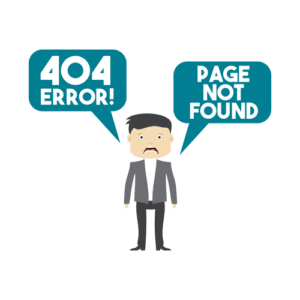
It is the impetus for building long-term relationships with clients and sustained revenue. With technology automating much of today’s tax compliance work, you can shift your firm’s engagement strategy for new clients based on the value your firm brings to their business. Client engagements are rightfully centered around your client’s business goals and the guidance your firm can provide, in addition to traditional tax compliance. With APIs that can automate the entire tax compliance workflow, accountants no longer have to spend their time on manual activities like entering data, identifying blank fields, or searching for numbers that don’t add up. Instead, they can shift their focus to more value-added activities like providing financial insights and helping clients navigate the complexities of tax law.
Мне заплатят проценты за возвращаемую сумму налога штата Нью-Йорк?
- Finance executives should help lead implementation plans and identify challenges and opportunities under the GloBE rules.
- Private company CFOs are change agents, stewards of long-term value and technology leaders, but need to improve their people skills.
- In addition to your tax and accounting credentials, accounting advisory requires a special set of soft skills and experience.
- Without a clear line of demarcation between services, some firms deliver advisory services while getting paid for compliance work.
- Branching into advisory services establishes your firm’s value beyond just tax returns.
Further, Amey posted a video on YouTube in Oct. 2023, suggesting that the office still maintained a presence at 1 Canada Square in Canary Wharf, London. However, he had actually been evicted earlier that year in January due to rent non-payment. In a London High Court ruling on April 30, Amey Finance Academy Ltd was ordered to close. The company’s sole owner and leader, Desmond Amey (42), who presented himself as a wealth creation specialist, had previously assured customers that their cryptocurrency investments were safe.

Key Advisory Advantages for Clients
The Practice Forward Graduate Master Learning Series is a CPE qualified, 6-session program presented by our Advisory Partners. This series is designed to advance your firm’s advisory journey and enhance your skills and knowledge in the field of advisory services. With an advisory business model that prioritizes improved compliance processes backed by comprehensive technology, you can begin your firm’s https://www.bookstime.com/ journey to offering expert advice that fosters a year-round relationship and more meaningful work. If so, it’s time to capitalize on these opportunities and shift your firm to an advisory-based model. By doing so, you can not only make the most of these opportunities, but learn how to build a brand around them, price your services competitively, and reallocate your resources appropriately.
What are accounting advisory services – consulting & advisory services explained
In addition to your tax and accounting credentials, accounting advisory requires a special set of soft skills and experience. For many firms, recent years have made it clear that serving clients is not all about tax compliance. It’s becoming increasingly necessary to develop personalized tax strategies and mitigate tax consequences. Establishing a clear, well-understood scope agreement brings clarity and builds trust.

Eight possible benefits of an accounting adviser
Advisory services in accounting means the accountant provides expert recommendations, options, and strategies to help business owners achieve their financial and operational goals. Often, accountants bring industry experience, accounting technology and process expertise, financial acumen, and an understanding of the client to develop personalized recommendations. Compliance services in accounting simply means ensuring the company’s financial records, reports, and filings comply with the applicable regulations and standards for the type of business. Accountants are experts who can identify accounting advisory services the applicable regulations and standards, and then assist with preparing the required reports and filings. Examples of external stakeholders that impose tax and reporting requirements on businesses include federal, state, and local governments; banks or lending institutions; the SEC; accounting standards boards; workers compensation underwriters; and many more. Accountants help business owners stay compliant by providing compliance services, such as bookkeeping, financial statement preparation, income tax preparation, payroll processing, sales tax collection and remittance, and more.
Michigan lawmaker wants state to pay reporters who uncover government misuse of taxpayer dollars
They may also be floating downstream, headed toward a waterfall, and be blissfully unaware of the trouble coming their way. Often, clients don’t know they need to ask for these services and won’t ask for your help in a consultative capacity until it’s too late. By layering in a cosourcing model, you can benefit from the collaboration that arises from a teaming environment. Cosourcing teams provide strategic insights that can help clients work through critical challenges and seize opportunities.
Advisory: How the cloud empowers firms to transform
- In the middle office, our industry-aligned teams help improve operations, supply chain, and related functions.
- These conversations can open up a dialogue and change the dynamic of the relationship—from feeling obligated to answer casual questions to a more formal transaction that supports your client and grows your firm.
- Здесь базируются наиболее влиятельные юридические фирмы страны, такие как Skadden, Arps, Slate, Meagher & Flom, DLA Piper, Latham & Watkins, White & Case, Greenberg Traurig, Cleary Gottlieb Steen & Hamilton, Weil, Gotshal & Manges.
- This changing skill set allows firms to go beyond traditional compliance roles and become trusted advisors for clients — resulting in stronger client relationships and more fulfilling work.
- Use the RFP submission form to detail the services KPMG can help assist you with.
- What is required is the ability to help your clients solve their problems and improve their businesses.


